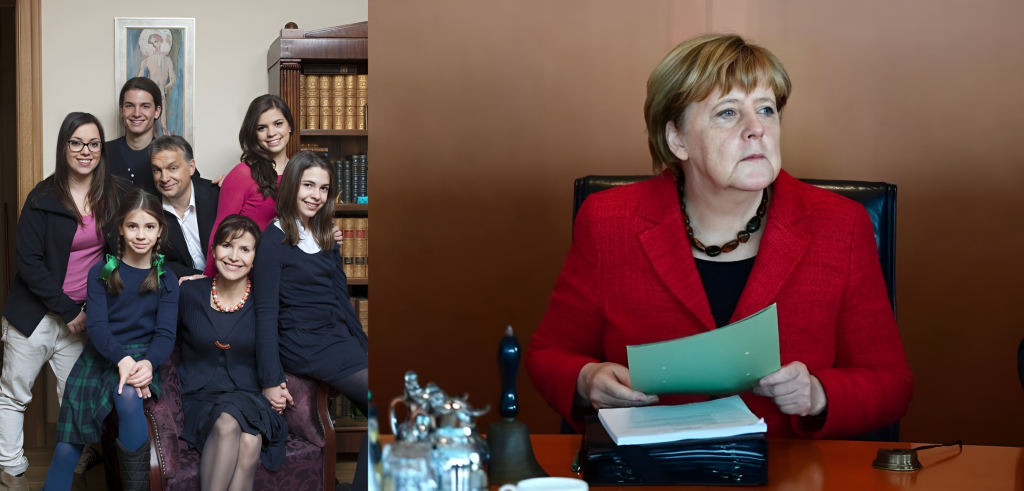Slovakia before Austro-Hungarian Empire
- May 15, 2024
Before becoming part of the Austro-Hungarian Empire, the territory that is now Slovakia was historically part of various kingdoms and empires. Here's an overview of Slovakia's history before the Austro-Hungarian Empire:
Early History: The region of present-day Slovakia has been inhabited since ancient times. It was settled by Celtic tribes, followed by Germanic, Slavic, and later Hungarian peoples. The Slavic tribes that settled in the area eventually formed the foundation of what would become the Slovak nation.
Great Moravian Empire (9th-10th Century): In the 9th century, the territory of present-day Slovakia was part of the Great Moravian Empire, a Slavic state that played a crucial role in the history of the region. Great Moravia was a significant power in Central Europe and had a strong cultural and religious influence, especially through the work of Saints Cyril and Methodius, who introduced Christianity and the Old Church Slavonic language.
Kingdom of Hungary (11th Century): In the late 10th and early 11th centuries, the Kingdom of Hungary emerged and gradually extended its control over the territory of present-day Slovakia. The Hungarians, also known as Magyars, established their rule and exerted influence over the region for several centuries.
Part of the Hungarian Kingdom: Throughout the medieval period, Slovakia remained part of the Hungarian Kingdom. It was administered as part of the Kingdom's counties, with Hungarian nobility and feudal structures dominating political and economic life.
Part of the Habsburg Monarchy (16th-17th Century): Slovakia came under Habsburg (Austrian) rule during the early modern period. The Habsburgs gradually expanded their influence over Hungary and its territories, including Slovakia. The region experienced conflicts and upheavals, including the Ottoman wars and Reformation movements.
Habsburg Rule and Integration: By the 18th century, the Habsburg Monarchy consolidated control over Hungary and its territories, including Slovakia. The region became an integral part of the Habsburg Empire, which later transformed into the Austro-Hungarian Empire in 1867.
Industrialization and Modernization: During the 19th century, Slovakia underwent industrialization and economic development within the framework of the Austro-Hungarian Empire. The economy shifted from predominantly agricultural to industrial, with mining and manufacturing becoming important sectors.
It's important to note that the history of Slovakia is intertwined with that of neighboring regions and kingdoms, especially Hungary and the Czech lands. The transition from the medieval period to modern times saw significant political, cultural, and economic changes that shaped the identity of the Slovak people and their place within larger European contexts.
- May 15, 2024
Before becoming part of the Austro-Hungarian Empire, the territory that is now Slovakia was historically part of various kingdoms and empires. Here's an overview of Slovakia's history before the Austro-Hungarian Empire:
Early History: The region of present-day Slovakia has been inhabited since ancient times. It was settled by Celtic tribes, followed by Germanic, Slavic, and later Hungarian peoples. The Slavic tribes that settled in the area eventually formed the foundation of what would become the Slovak nation.
Great Moravian Empire (9th-10th Century): In the 9th century, the territory of present-day Slovakia was part of the Great Moravian Empire, a Slavic state that played a crucial role in the history of the region. Great Moravia was a significant power in Central Europe and had a strong cultural and religious influence, especially through the work of Saints Cyril and Methodius, who introduced Christianity and the Old Church Slavonic language.
Kingdom of Hungary (11th Century): In the late 10th and early 11th centuries, the Kingdom of Hungary emerged and gradually extended its control over the territory of present-day Slovakia. The Hungarians, also known as Magyars, established their rule and exerted influence over the region for several centuries.
Part of the Hungarian Kingdom: Throughout the medieval period, Slovakia remained part of the Hungarian Kingdom. It was administered as part of the Kingdom's counties, with Hungarian nobility and feudal structures dominating political and economic life.
Part of the Habsburg Monarchy (16th-17th Century): Slovakia came under Habsburg (Austrian) rule during the early modern period. The Habsburgs gradually expanded their influence over Hungary and its territories, including Slovakia. The region experienced conflicts and upheavals, including the Ottoman wars and Reformation movements.
Habsburg Rule and Integration: By the 18th century, the Habsburg Monarchy consolidated control over Hungary and its territories, including Slovakia. The region became an integral part of the Habsburg Empire, which later transformed into the Austro-Hungarian Empire in 1867.
Industrialization and Modernization: During the 19th century, Slovakia underwent industrialization and economic development within the framework of the Austro-Hungarian Empire. The economy shifted from predominantly agricultural to industrial, with mining and manufacturing becoming important sectors.
It's important to note that the history of Slovakia is intertwined with that of neighboring regions and kingdoms, especially Hungary and the Czech lands. The transition from the medieval period to modern times saw significant political, cultural, and economic changes that shaped the identity of the Slovak people and their place within larger European contexts.
Slovakia before Austro-Hungarian Empire
- May 15, 2024
Before becoming part of the Austro-Hungarian Empire, the territory that is now Slovakia was historically part of various kingdoms and empires. Here's an overview of Slovakia's history before the Austro-Hungarian Empire:
Early History: The region of present-day Slovakia has been inhabited since ancient times. It was settled by Celtic tribes, followed by Germanic, Slavic, and later Hungarian peoples. The Slavic tribes that settled in the area eventually formed the foundation of what would become the Slovak nation.
Great Moravian Empire (9th-10th Century): In the 9th century, the territory of present-day Slovakia was part of the Great Moravian Empire, a Slavic state that played a crucial role in the history of the region. Great Moravia was a significant power in Central Europe and had a strong cultural and religious influence, especially through the work of Saints Cyril and Methodius, who introduced Christianity and the Old Church Slavonic language.
Kingdom of Hungary (11th Century): In the late 10th and early 11th centuries, the Kingdom of Hungary emerged and gradually extended its control over the territory of present-day Slovakia. The Hungarians, also known as Magyars, established their rule and exerted influence over the region for several centuries.
Part of the Hungarian Kingdom: Throughout the medieval period, Slovakia remained part of the Hungarian Kingdom. It was administered as part of the Kingdom's counties, with Hungarian nobility and feudal structures dominating political and economic life.
Part of the Habsburg Monarchy (16th-17th Century): Slovakia came under Habsburg (Austrian) rule during the early modern period. The Habsburgs gradually expanded their influence over Hungary and its territories, including Slovakia. The region experienced conflicts and upheavals, including the Ottoman wars and Reformation movements.
Habsburg Rule and Integration: By the 18th century, the Habsburg Monarchy consolidated control over Hungary and its territories, including Slovakia. The region became an integral part of the Habsburg Empire, which later transformed into the Austro-Hungarian Empire in 1867.
Industrialization and Modernization: During the 19th century, Slovakia underwent industrialization and economic development within the framework of the Austro-Hungarian Empire. The economy shifted from predominantly agricultural to industrial, with mining and manufacturing becoming important sectors.
It's important to note that the history of Slovakia is intertwined with that of neighboring regions and kingdoms, especially Hungary and the Czech lands. The transition from the medieval period to modern times saw significant political, cultural, and economic changes that shaped the identity of the Slovak people and their place within larger European contexts.
0 Kommentare
0 Anteile
404 Ansichten







